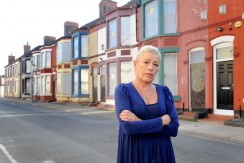When you let your house out to tenants, there are plenty of ways you can protect your money and your property to ensure that everything runs smoothly.
Checking the reliability of a tenant
Obviously it's preferable to get reliable tenants in the first place.
Arguably the most important thing is to ensure you get references for them. You should aim to have testimonials from both their employer and previous landlords. If they are a reliable, honest person, this shouldn't be an issue.
It pays to be cautious, which means you should feel confident to ask a prospective tenant to provide contact numbers for their referees, and you then need to ensure you call them to check their validity.
You should also make sure you get three months' pay cheques from them. Although this suggests they are in gainful employment, getting a reliable third party to conduct a credit check on them makes sense too.
If you don't have the time, it may be worth using a tenant referencing service where all the work's done for you. You can purchase a basic or more in-depth search, which will include income checks, references from previous lets and their credit history.
Get your paperwork in order
A Tenancy Agreement is the most important document that needs to be agreed upon and signed by both you and your tenant. It serves as a good point of reference for any issues which might arise. You shouldn't even consider letting your property out until you have one in place.
Insure yourself and your property
Even with the best intentions, issues do arise when you lease property and the best way to be prepared for any future problems is to get yourself insured.
Tenants can easily fall into arrears with their rent, so it makes sense to protect your investment should this problem arise. There are plenty of options out there and for just a small amount of money each month, you'll get peace of mind.
Rent guarantee insurance means that if your tenant cannot pay on time, you will be completely protected.
Buildings and contents cover
Although you probably don't want to think about it, a property which is rented out may be damaged, as might its contents. Rather than crossing your fingers that such things won't happen, it really makes sense to get landlords buildings insurance and contents cover. You can get a policy which covers both, and that probably makes sense as it's less hassle and paperwork for you. Go to a reputable company and do your homework to make sure you get the best deal.
Pick the right insurance and you will be covered for all eventualities including accidental and malicious damage, and theft. It will also give you protection if you have periods when the property's empty between tenancies.
Know what you need to provide
Renting out a property is a two-way process and it's important to know that you are providing the service that is expected of you, and that your property adheres to basic standards.
If you search gov.uk for landlords' responsibilities, you will find a list that landlords should abide by, such as ensuring a property is "safe and free from health hazards".
There is also a list of fire safety regulations that help you understand what is required when renting out a property.
Are you looking to buy property in UK ? Hurghada , Scotland , Istanbul , Sahl Hasheesh , Dubai
Are you looking to rent property in UK ? London , Manchester , Reading , Leeds , Cardiff







Author
Nick Marr
I am an internet entrepreneur with a passion for driving big audiences and a love for real estate. I have had plenty of ups and downs which has given me the experience to help others launch their own businesses. I enjoy projects that save consumers time and money, challenge convention and add real value to peoples lives.